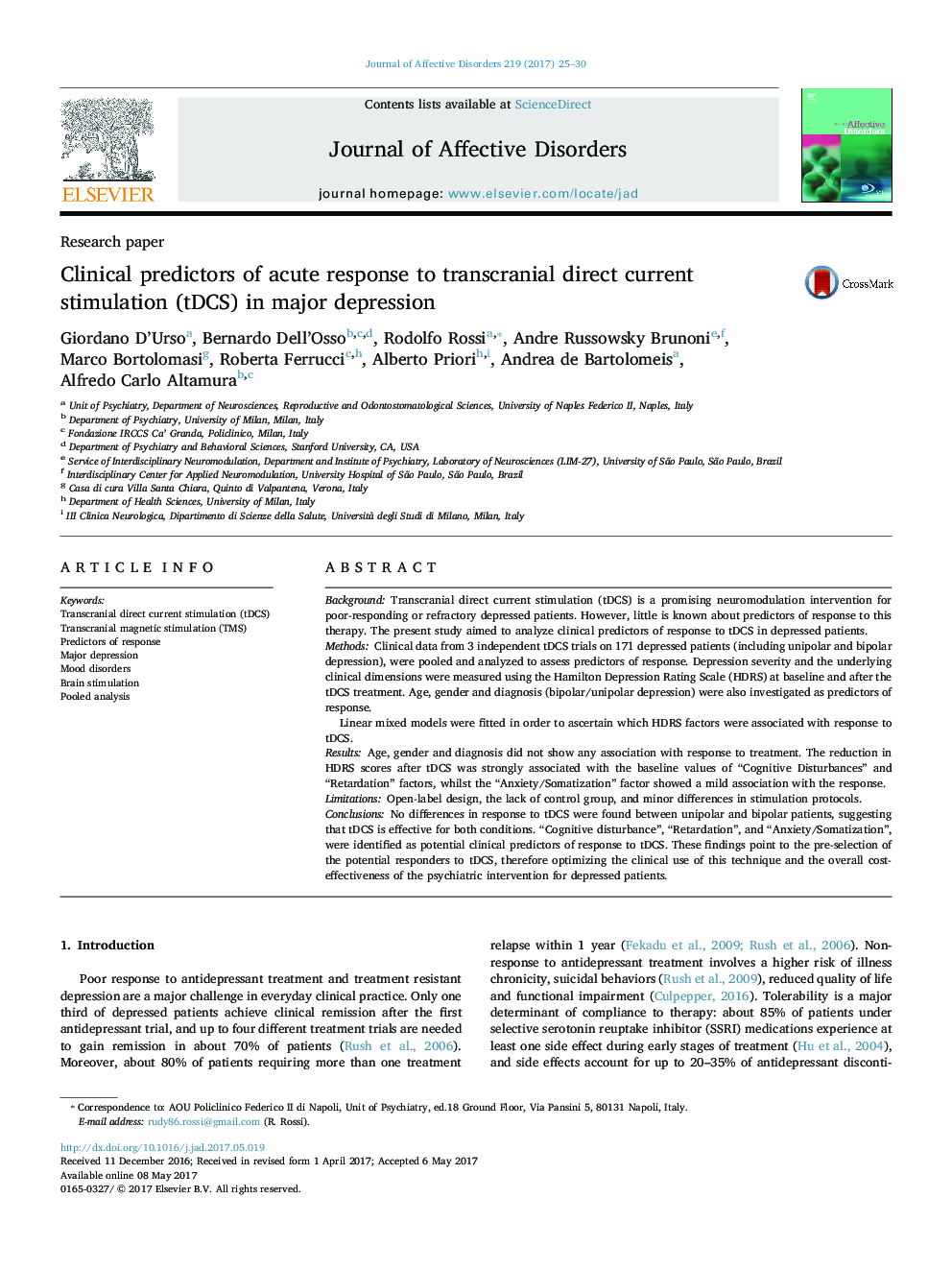| Article ID | Journal | Published Year | Pages | File Type |
|---|---|---|---|---|
| 5721870 | Journal of Affective Disorders | 2017 | 6 Pages |
â¢Baseline “Cognitive Disturbances” and “Retardation” scores predicted response to tDCS.â¢No differences in response to tDCS were found between unipolar and bipolar patients.â¢Age and gender did not show any association with response to treatment.
BackgroundTranscranial direct current stimulation (tDCS) is a promising neuromodulation intervention for poor-responding or refractory depressed patients. However, little is known about predictors of response to this therapy. The present study aimed to analyze clinical predictors of response to tDCS in depressed patients.MethodsClinical data from 3 independent tDCS trials on 171 depressed patients (including unipolar and bipolar depression), were pooled and analyzed to assess predictors of response. Depression severity and the underlying clinical dimensions were measured using the Hamilton Depression Rating Scale (HDRS) at baseline and after the tDCS treatment. Age, gender and diagnosis (bipolar/unipolar depression) were also investigated as predictors of response.Linear mixed models were fitted in order to ascertain which HDRS factors were associated with response to tDCS.ResultsAge, gender and diagnosis did not show any association with response to treatment. The reduction in HDRS scores after tDCS was strongly associated with the baseline values of “Cognitive Disturbances” and “Retardation” factors, whilst the “Anxiety/Somatization” factor showed a mild association with the response.LimitationsOpen-label design, the lack of control group, and minor differences in stimulation protocols.ConclusionsNo differences in response to tDCS were found between unipolar and bipolar patients, suggesting that tDCS is effective for both conditions. “Cognitive disturbance”, “Retardation”, and “Anxiety/Somatization”, were identified as potential clinical predictors of response to tDCS. These findings point to the pre-selection of the potential responders to tDCS, therefore optimizing the clinical use of this technique and the overall cost-effectiveness of the psychiatric intervention for depressed patients.
